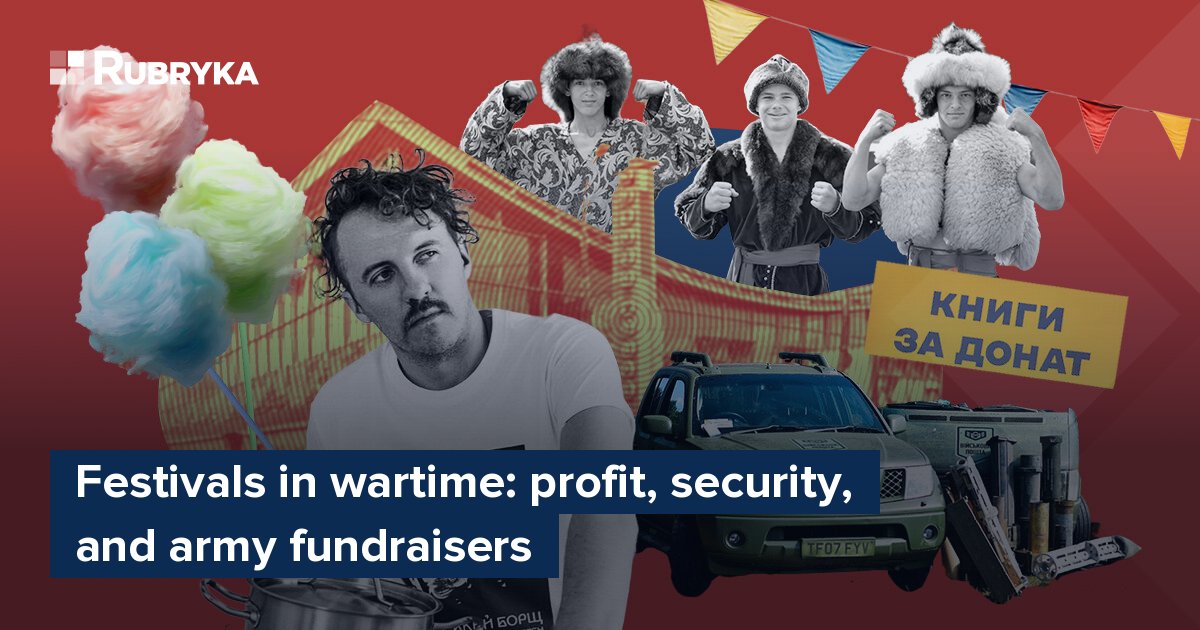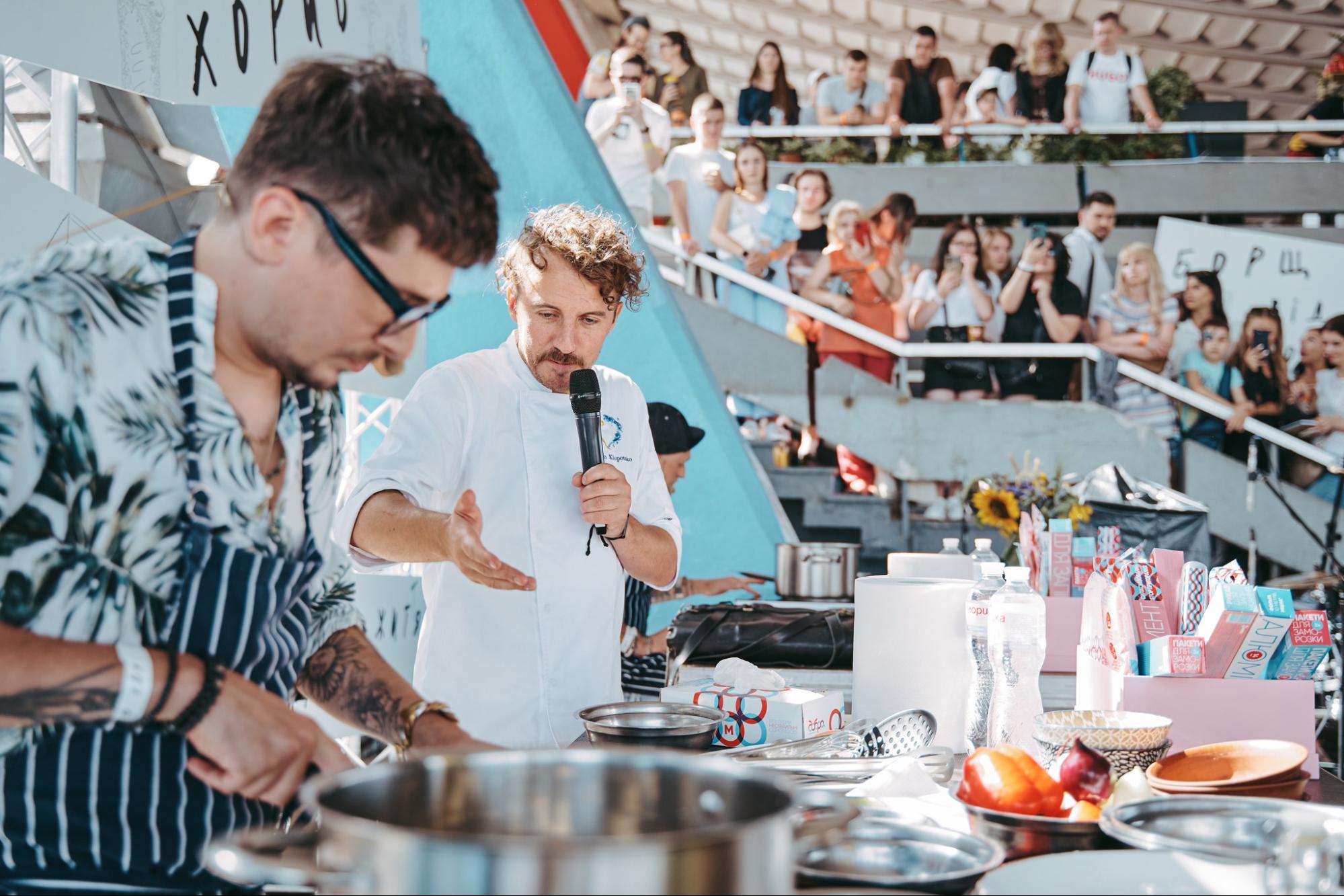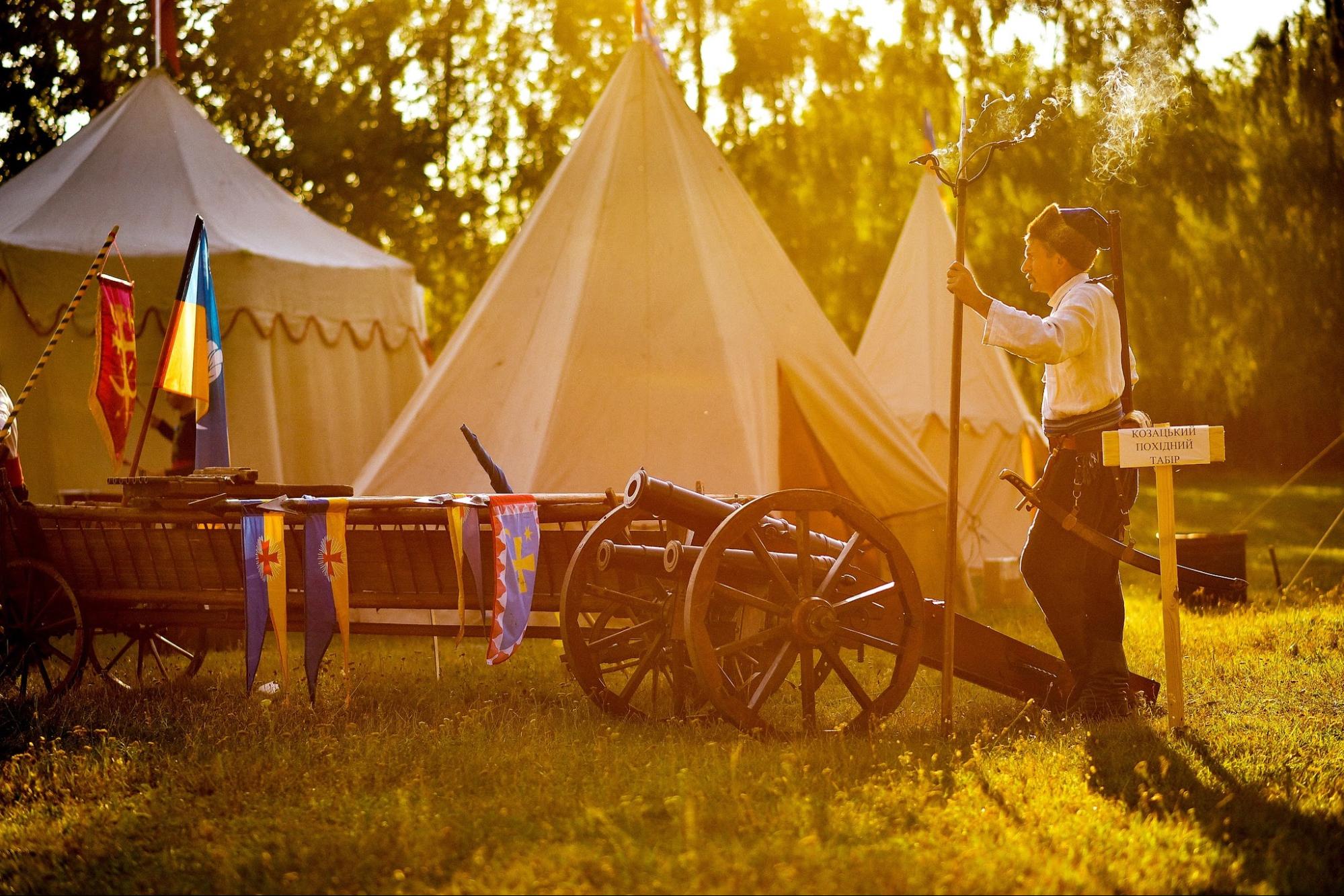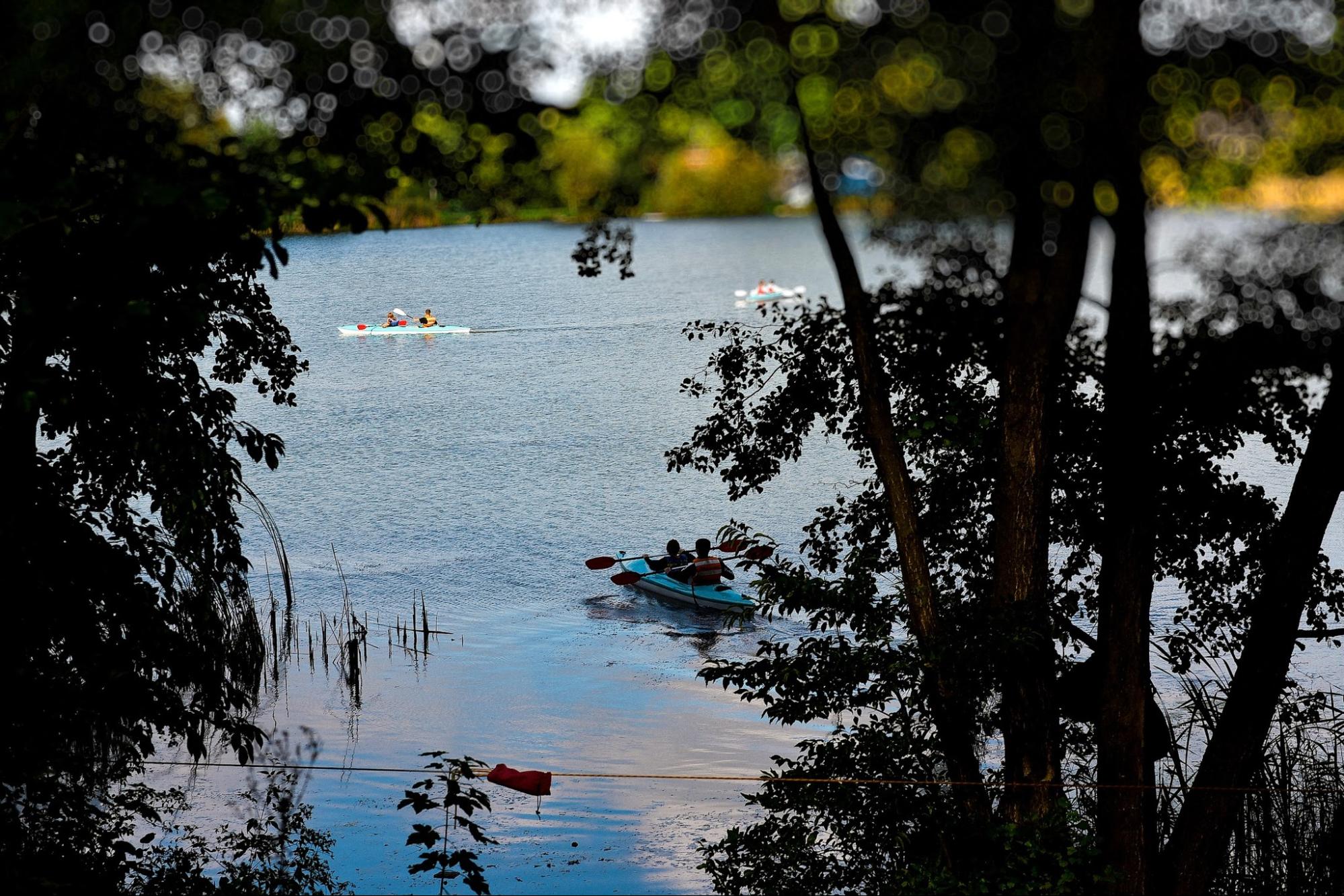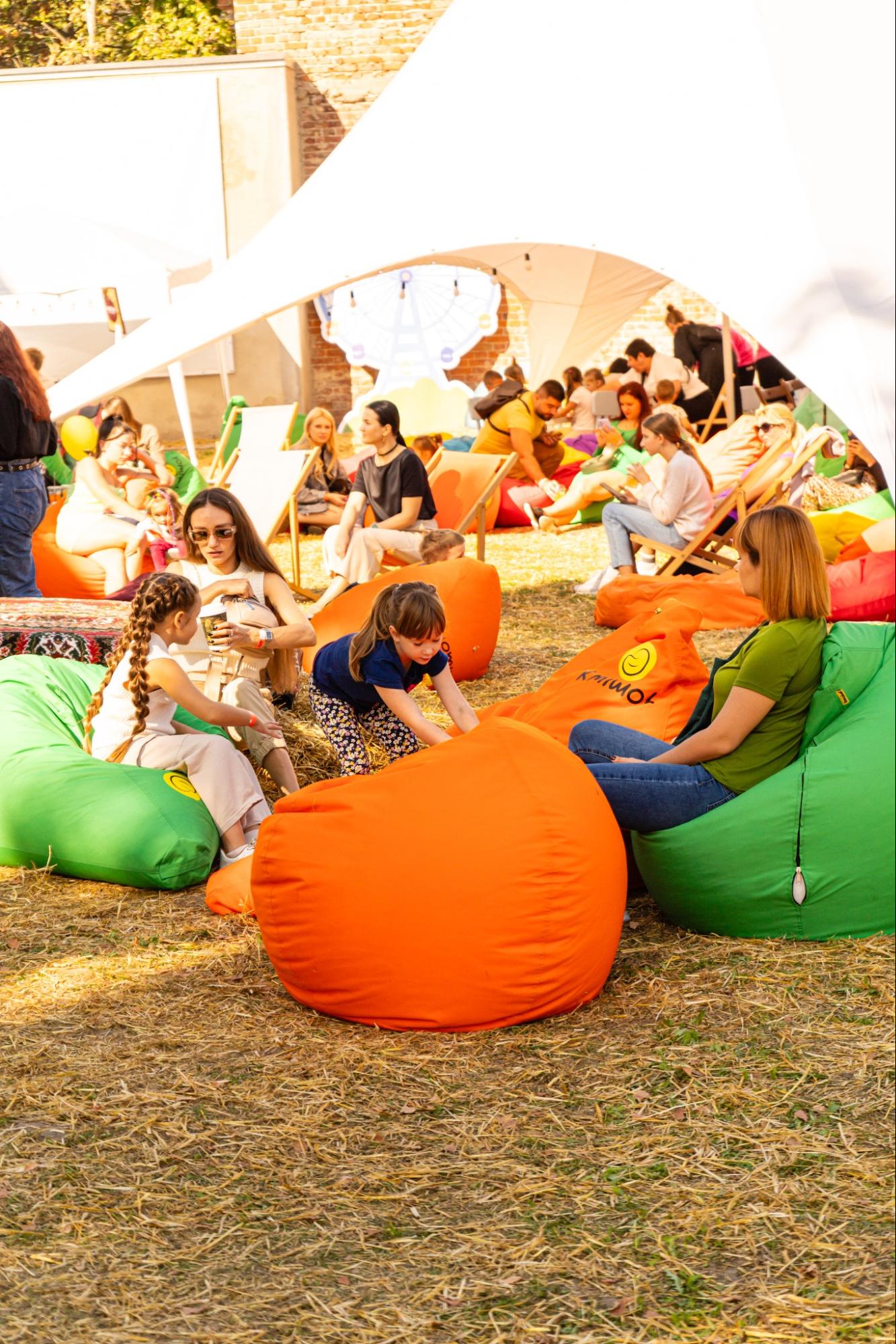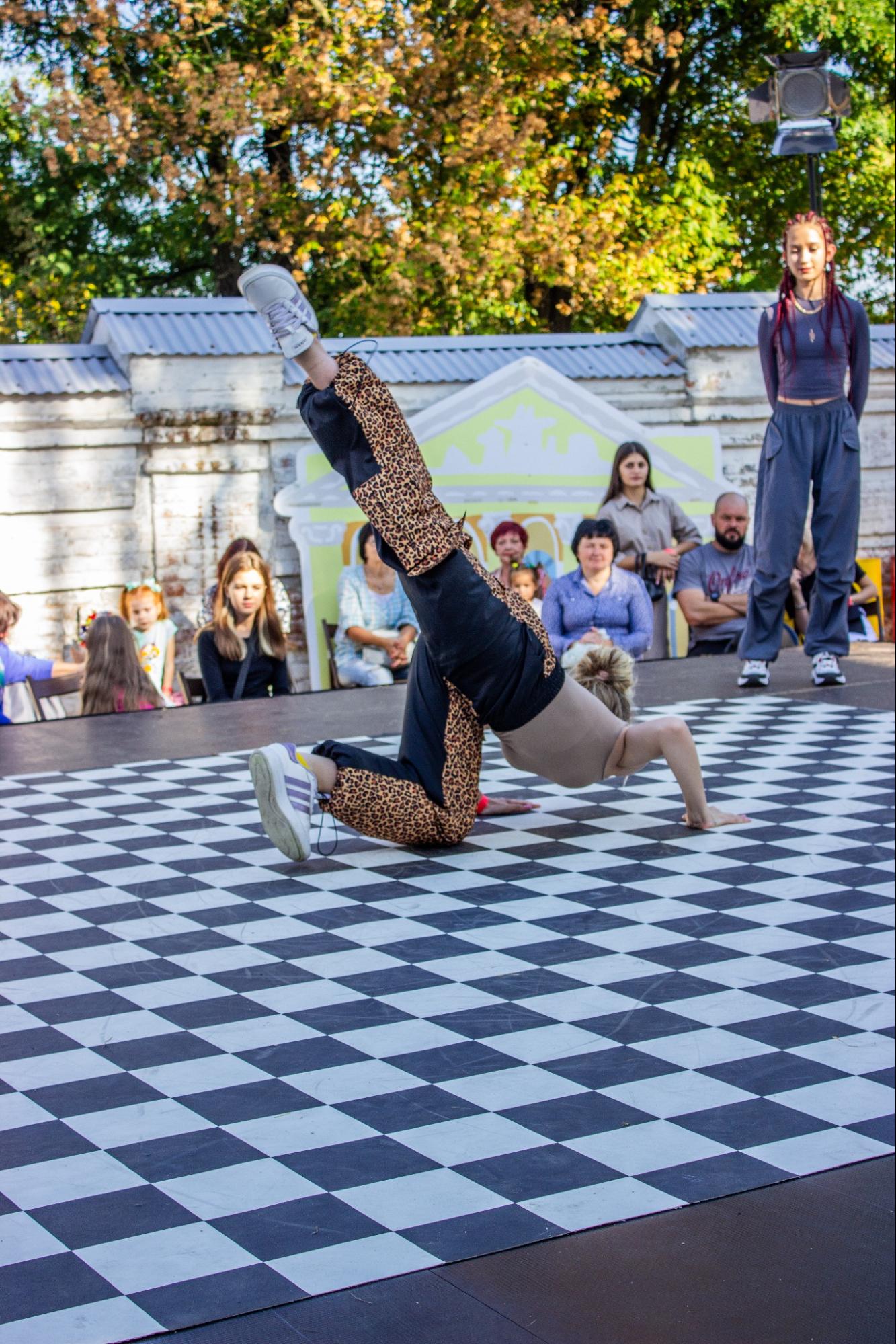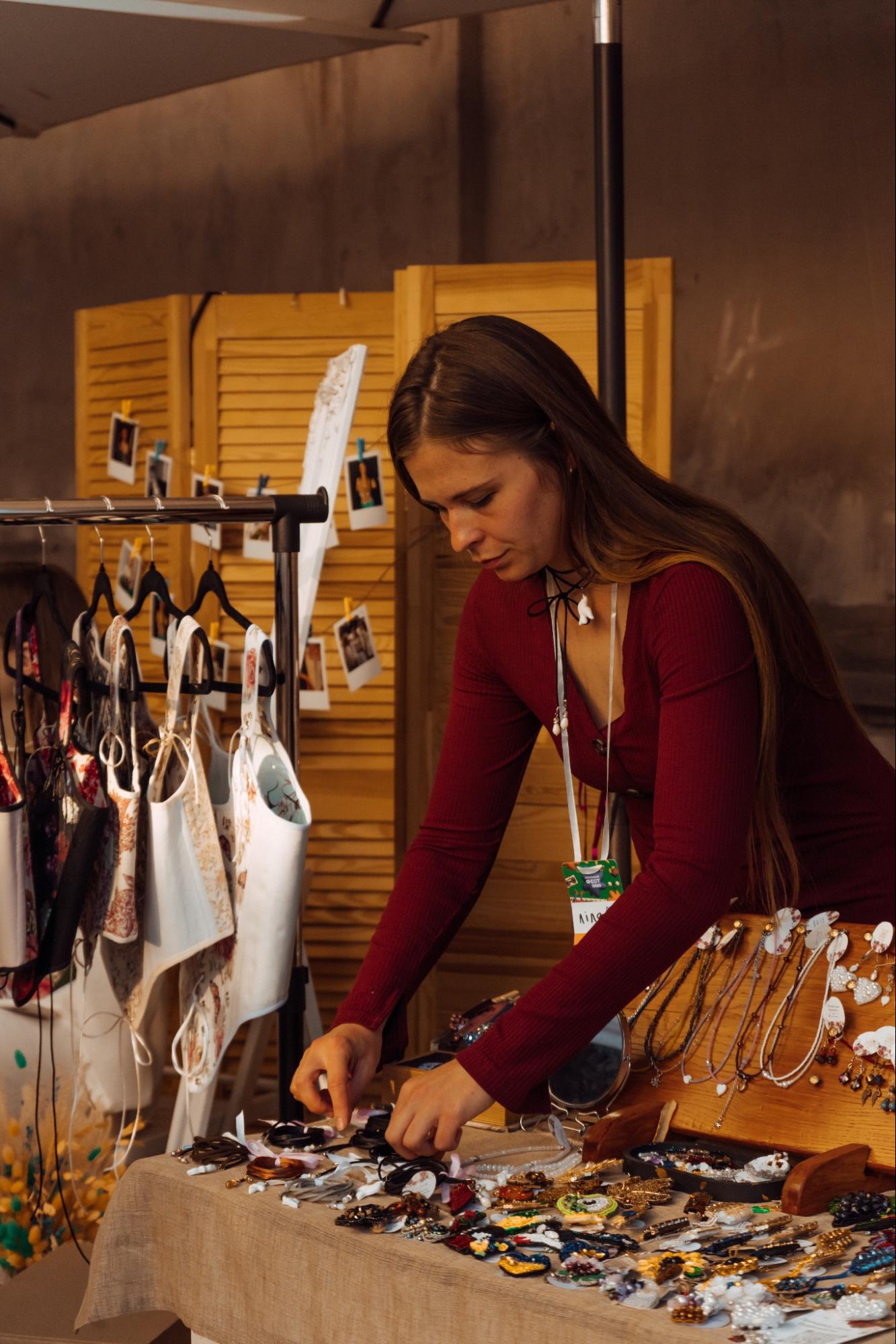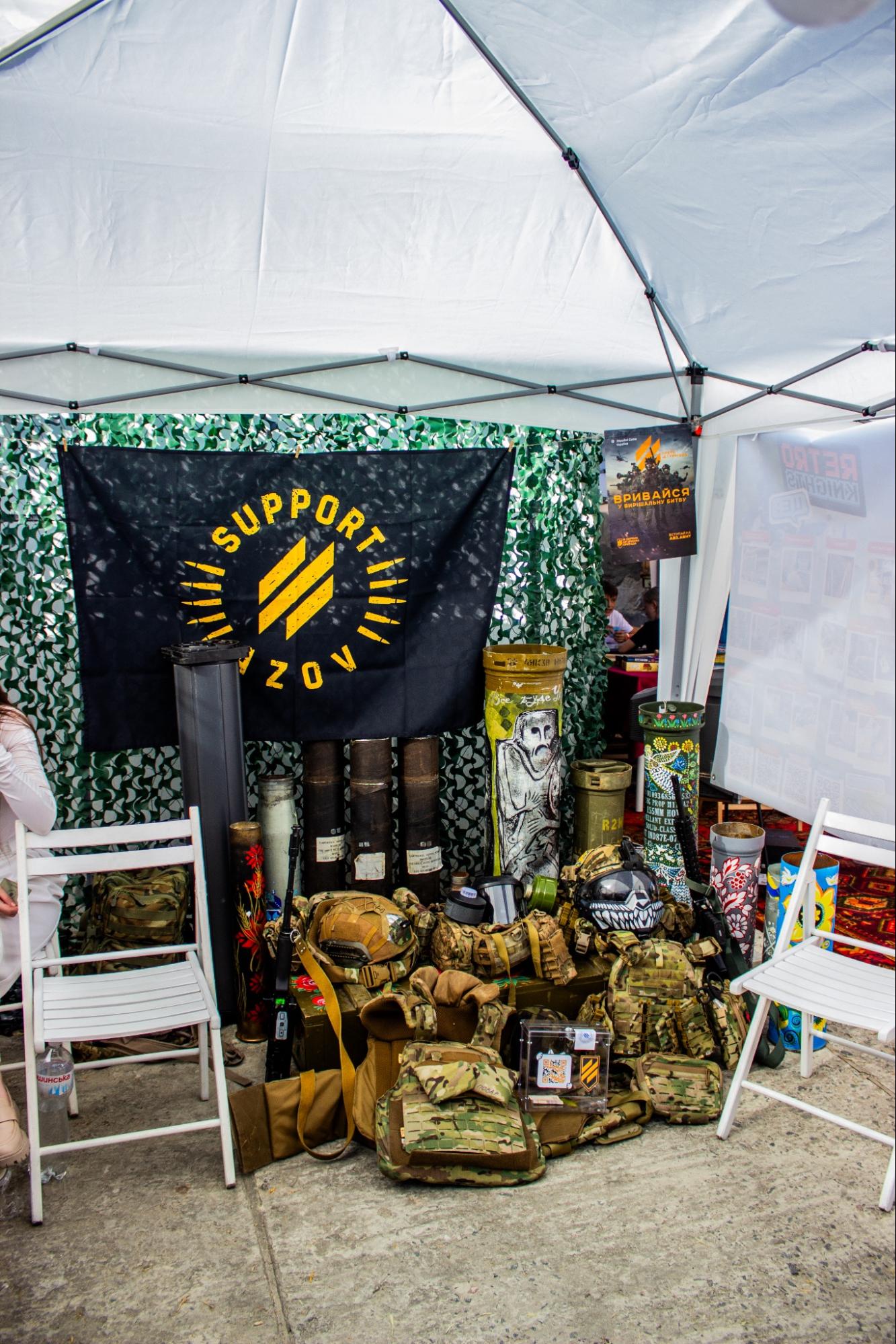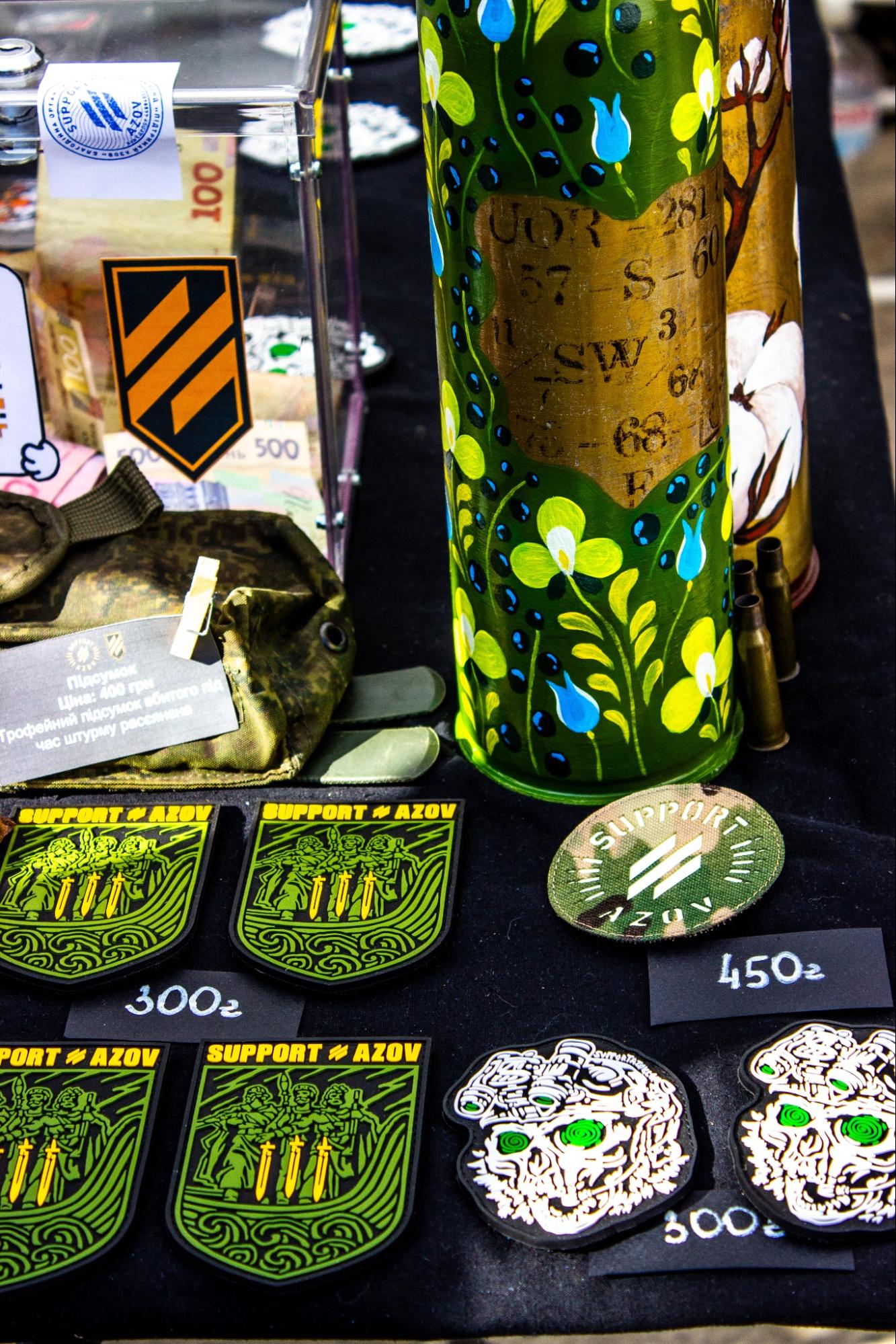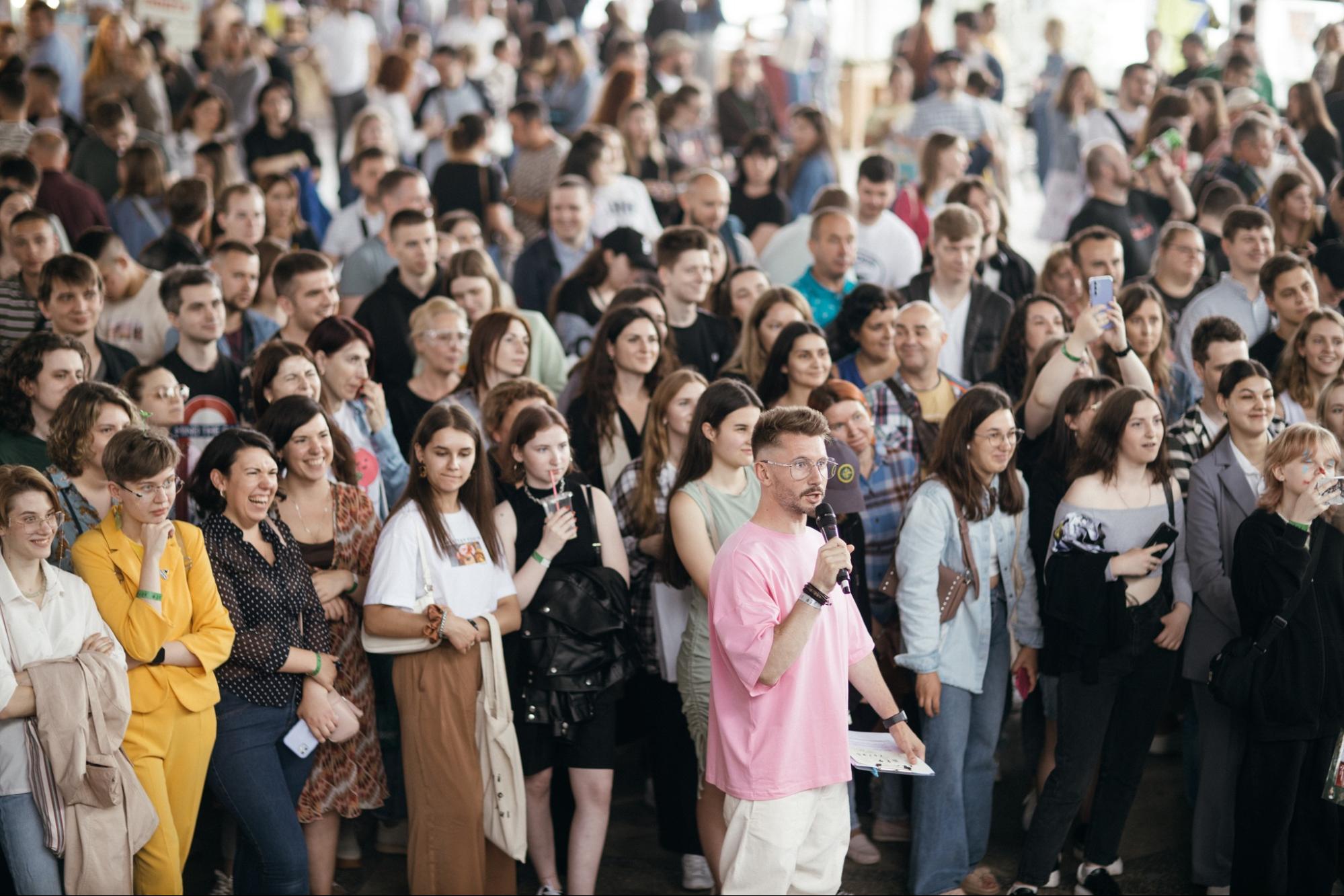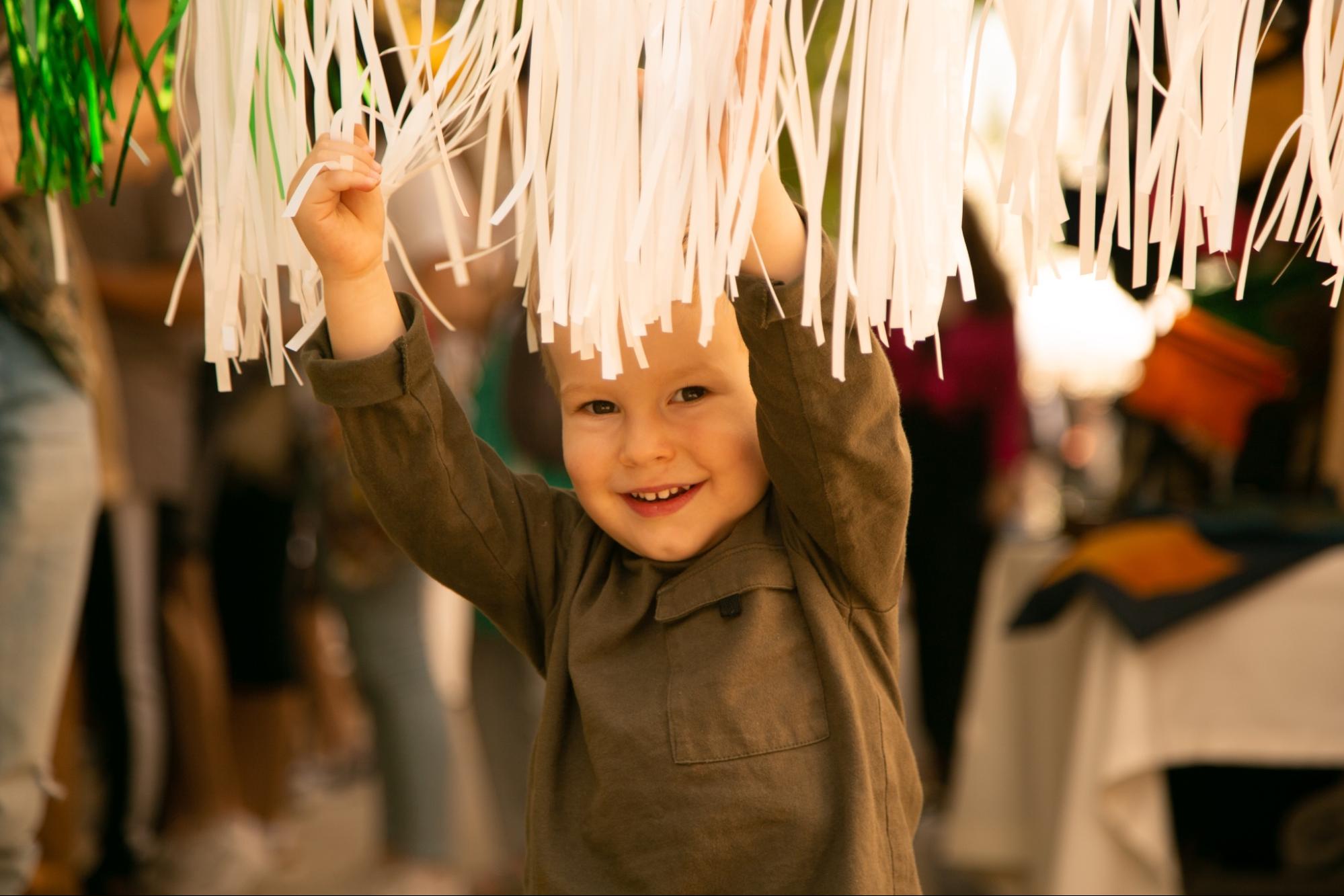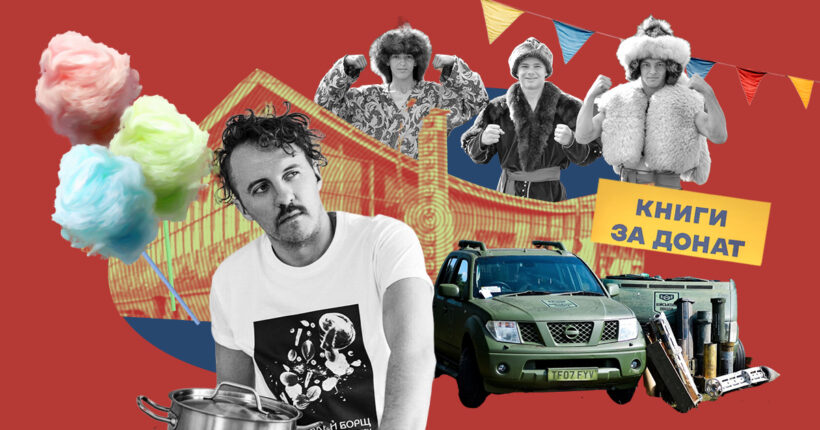
What is the problem?
Festivals are part of the cultural life of cities and entire countries. They are often also about supporting the local economy, small and medium-sized entrepreneurs, the influx of tourists, and development. Due to the full-scale war, the attitude towards festivals was divided in Ukraine. When announcements about the first festivals after February 24 began to appear, some saw it as an excellent opportunity to rest a little at least and recharge, while others saw it as unnecessary risks and inappropriate joy.
After the military attended these festivals, and the organizers began to collect money for the army during the action, accumulating large sums, the degree of tension decreased somewhat. However, this did not eliminate some other challenges — for example, regarding the safety of guests. Rubryka found out how Ukrainian festivals function during the war, how the organizers ensure security, and whether festivals are necessary at all.
What is the solution?
Despite such difficult conditions today, festivals echo pre-war life. They are an opportunity to distract from the terrible realities of war while contributing to the support of the city's military, business, and economy. Such mass events allow cities to develop, people to unite, and to rest a little to be inspired to approach Ukraine's victory.
"My advice is to hold festivals. There will never be a perfect time. Surround yourself with cool people who can back you up at any time. Always have a plan of action, and don't be afraid to take responsibility," says Ukrainian chef Yevhen Klopotenko.
The organizers of Kyi.Shchek.Khoryv and The Spirit of Unbreakable festivals, Yevhen Klopotenko and Roman Kovalchuk, as well as the coordinator of the festival Spassky Fest. My Poltava, Anastasia Lisova, shared the experience of holding festivals during the war.
How does it work?
The listed festivals took place in different cities of Ukraine: Kyi.Shchek.Khoryv — in July and October in Kyiv, The Spirit of Unbreakable — in September in the Volyn region and Spassky Fest. My Poltava — in late September-early October in Poltava. All of them lasted several days, but they had different themes and missions. However, they also had something in common — fundraisers to help the Armed Forces of Ukraine.
As the organizer of Kyi.Shchek.Khoryv and chef Yevhen Klopotenko shared it was easy for him to dare to hold the festival. The festival's goal was to bring life back to one of Kyiv's oldest markets — Zhytniy, which translates as Rye in Ukrainian, which was in decline due to the condition of the building and the decrease in buyers and sellers.
Zhytniy market is communal property, property of the city and the public. Therefore, its preservation and restoration directly affect the image of Kyiv. Thus, the community has the right to speak about its market development vision and can make changes independently. According to Klopotenko, festivals are atypical entertainment, and they have important goals.
"The first goal is to rally people around the restoration of the Zhytniy market and highlight its importance because it is our history and culture. If we do not do any activities, someone will privatize or demolish it," Klopotenko shared with Rubryka. "The second is to help the Ukrainian military. After all, part of the funds from the event is intended for the army's needs. The third is to show Ukrainians how many cool craft producers and manufacturers Ukraine has and allow these small brands to show themselves."
Besides that, events of this format are an opportunity to be in your people's circle and feel each other's support. According to Klopotnko, it is also a way to restore one's strength and emotional resources so as not to forget about life even in conditions of full-scale war.
The all-Ukrainian festival, The Spirit of Unbreakable, popularizes national sports and national patriotic education and fundraises for the army. Cossack units and sports organizations from all over Ukraine gather for it. The event is designed for children and their parents and takes place on the territory of the Volyn Museum of the History of Agriculture, which covers an area of four hectares. There were locations with Ukrainian crafts, a Cossack tent camp, a rope park with obstacles, kayaking, and other entertainment activities.
"People get tired of donating, so you must interest them somehow. The main direction of the festival is the national-patriotic upbringing of children; they get to know Ukrainian culture and history, and the program is mega-patriotic," shares Roman Kovalchuk, the organizer of the Spirit of the Unbreakable festival. Someone may never have been interested in Cossacks, but after participating in the festival, they may want to join a Cossack group. In addition to keeping the child interested, it helps them develop in this way and distracts them from the realities of war.
Participants also have the opportunity to perform and compete with their peers. Participating in festivals allows you to raise your self-esteem, overcome your fear of the public, and refine your skills. "Children are Ukraine's future, and it is important that when they become adults, they are motivated to develop themselves and Ukraine," says the organizer.
The slogan of the festival Spassky Fest. My Poltava is "feel the city that comes to life." As its coordinator, Anastasiia Lisova, explains, it is designed to support and informationally promote Ukrainian masters, volunteer, and non-governmental organizations and collect money for the military. Currently, it is almost the largest in the city. Although the festival mainly gathers participants from the Poltava region, the organizers try to invite businesses from other regions.
"Festivals and markets are very well developed in Kyiv, so a craftsman from Kyiv, for example, has no motivation to go to Poltava to sell something here. Therefore, we also have the same challenge here: how to bring more new brands, new masters from other cities to Poltava," says Lisova.
However, as the fest coordinator adds, the event had a headliner — ENLEO, a musician and singer from Mariupol. Many of his fans at the festival formed a queue for an autograph session after the concert.
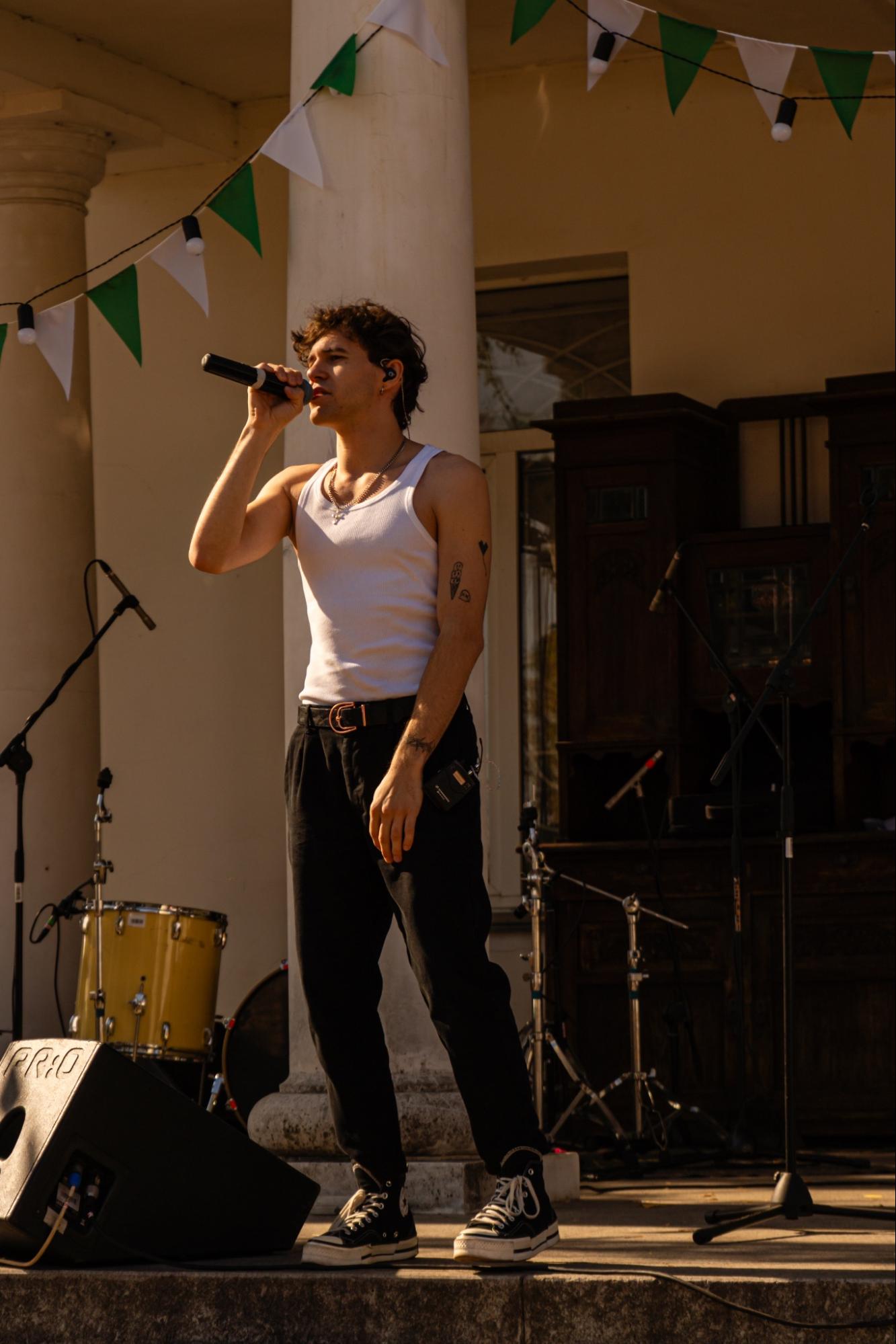
Musician and singer from Mariupol ENLEO. Photo: Instagram/mistohab
"We started organizing festivals in June 2022 to give people motivation to donate and at the same time have something in return. The first was very small, with three crafting points. Now, we have already held more than ten on a much larger scale, with street closures. Our festival has various participants — volunteers and creative people who come together in one place and realize their potential. For example, we had the Center of Street Cultures, which organized competitions among more than 300 children from the entire region," Lisova explains.
Benefit from festivals
Crafters from Ternopil, Dnipro, Lviv, Rivne, Kyiv, Sumy, Kharkiv, and other regions brought their products to the festival.
"Many of our participants were already sold out on the festival's first day. That is, they completely sold the goods that were to be presented on both days of the pop-up," said Klopotenko.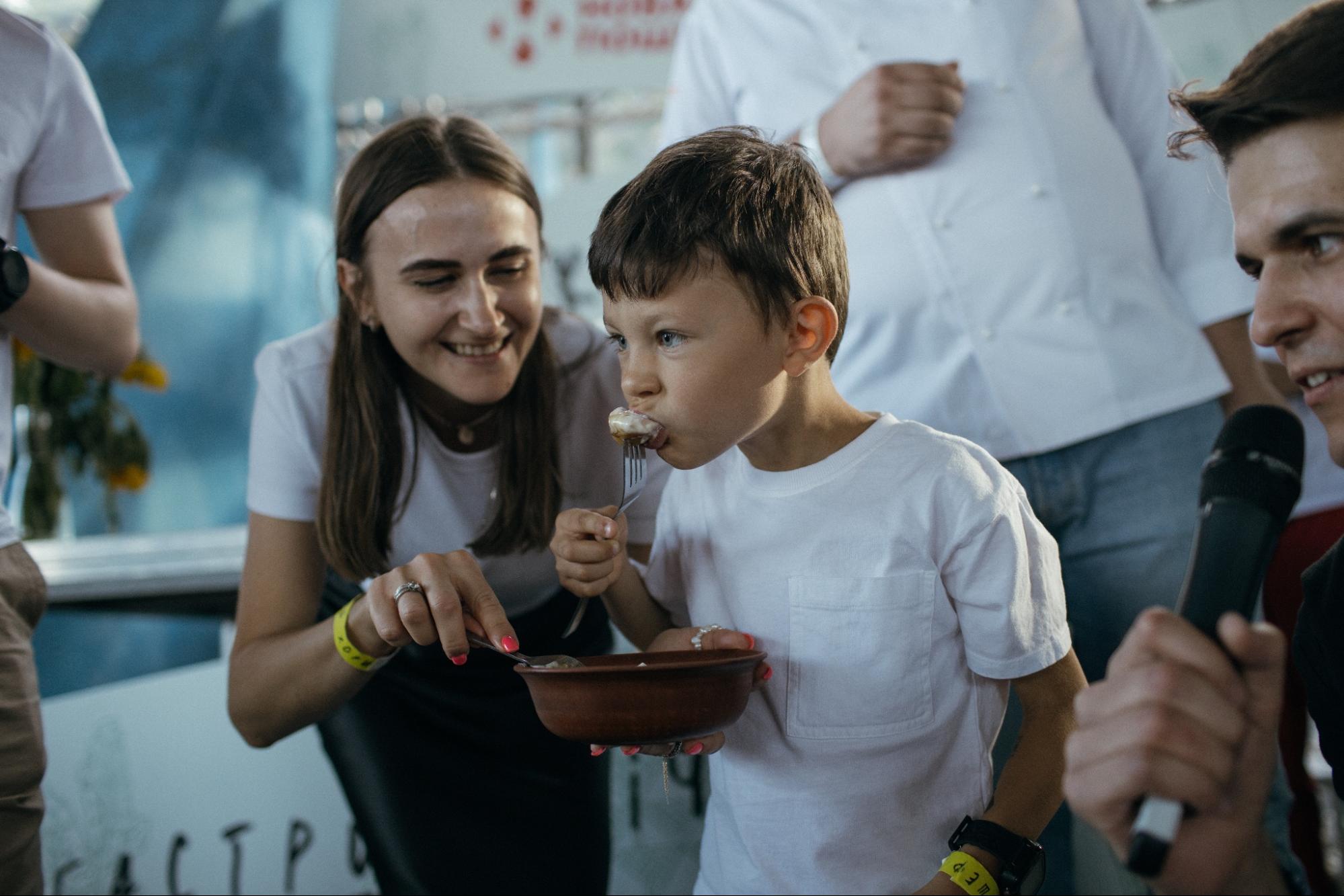 The boy tastes the food cooked by the chefs. Photo: Facebook/Zhytniy Rynok
The boy tastes the food cooked by the chefs. Photo: Facebook/Zhytniy Rynok
Part of the funds collected from the festival were transferred to the revival of the Zhytniy market. Step by step, thanks to such events, it will become not only the pearl of Kyiv's historic district Podil, the gastronomic and cultural hub of the city, but also a great magnet for tourists.
After consulting with the management of the market and representatives of the city administration, they came to the conclusion that Zhytniy needs a general in-depth assessment of its condition. It will help plan the stages of future reconstruction and highlight those areas that already need attention and funding. "We spent the funds from both festivals on a full market audit. Further, the plans include the search for investors and negotiations with the Kyiv City Council regarding full-scale reconstruction. Of course, we will report all the spent funds to the citizens," says Klopotenko.
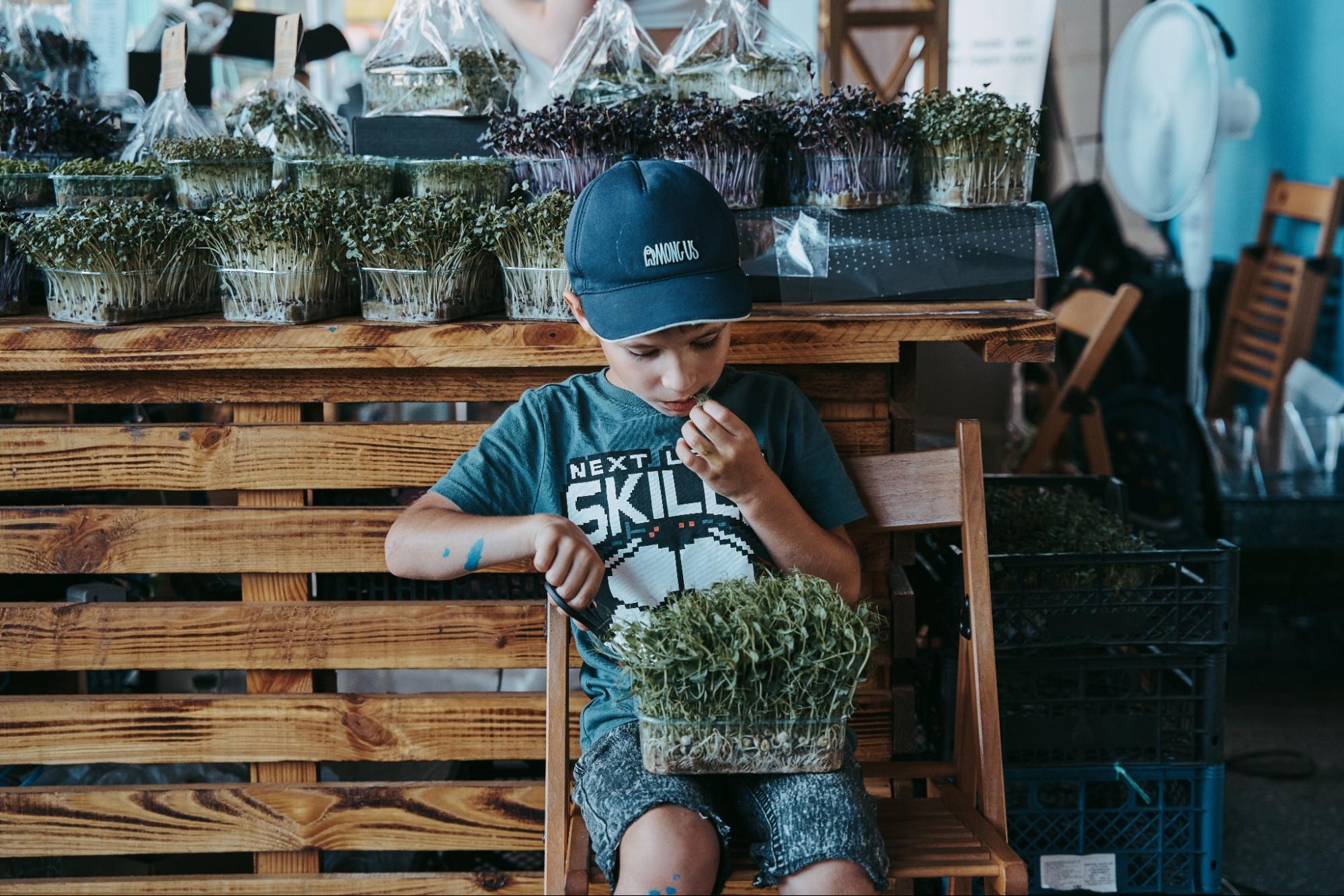
A boy tastes craft products. Photo: Facebook/Zhytniy Rynok
Thanks to The Spirit of Unbreakable festival, you can demonstrate your sports skills and get acquainted with Cossack weapons and ancient Ukrainian crafts. Since the potential audience is children, Kovalchuk admits he wants them to have a childhood and some entertainment even during the war, especially since the program is based on national and patriotic education: "Children of the military also come to the festival; they participate in activities and master classes and then, with enthusiasm, tell about it to their parents who are at the front. This charges them in a certain way. Such events fill the military themselves spiritually. Children have the opportunity to show their skills and learn something new. Therefore, the festival is not only a collection of money, but also emotions."
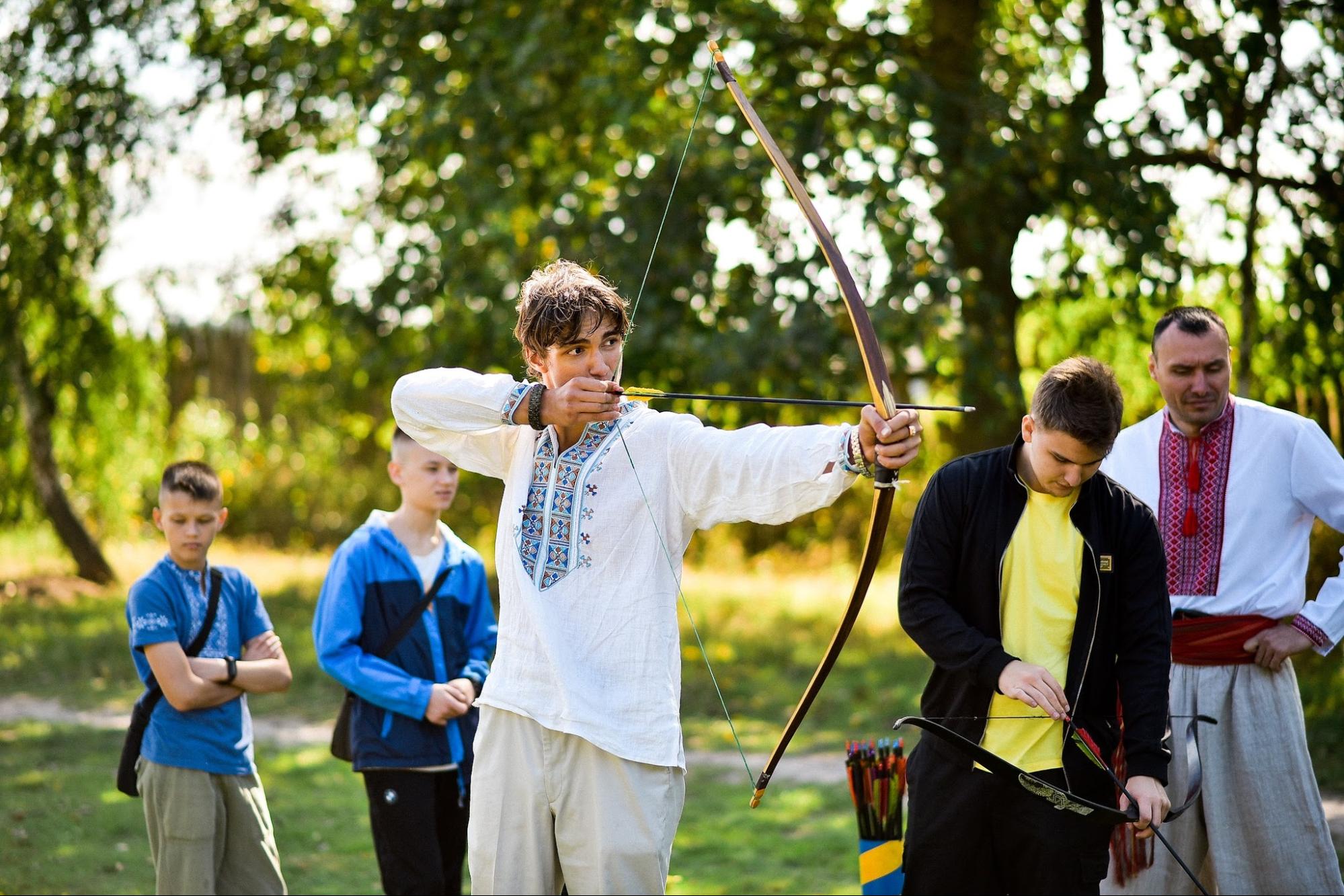 Archery at The Spirit of the Unbreakable festival. Photo: Roman Kovalchuk
Archery at The Spirit of the Unbreakable festival. Photo: Roman Kovalchuk
Spassky Fest. My Poltava becomes a so-called platform for Poltava manufacturers and organizations that receive informational and financial support.
"We always maintain communication with participants and receive feedback from them. They thank us for the opportunity and say this is a great chance to talk about themselves. As a bonus, of course, they get sales and emotions," Lisova shares.
A part of the funds collected at the festival is directed to the accessibility of the Mistohub space for groups with limited mobility: "The organizers of the Spassky Fest are the non-governmental organization Mistohub. It is located in a historic building, and we plan to launch a full-fledged project with a cafe, a modern Poltava souvenir shop, and an event space. It will allow funds to be directed to the development of Poltava," Lisova shares with Rubryka.
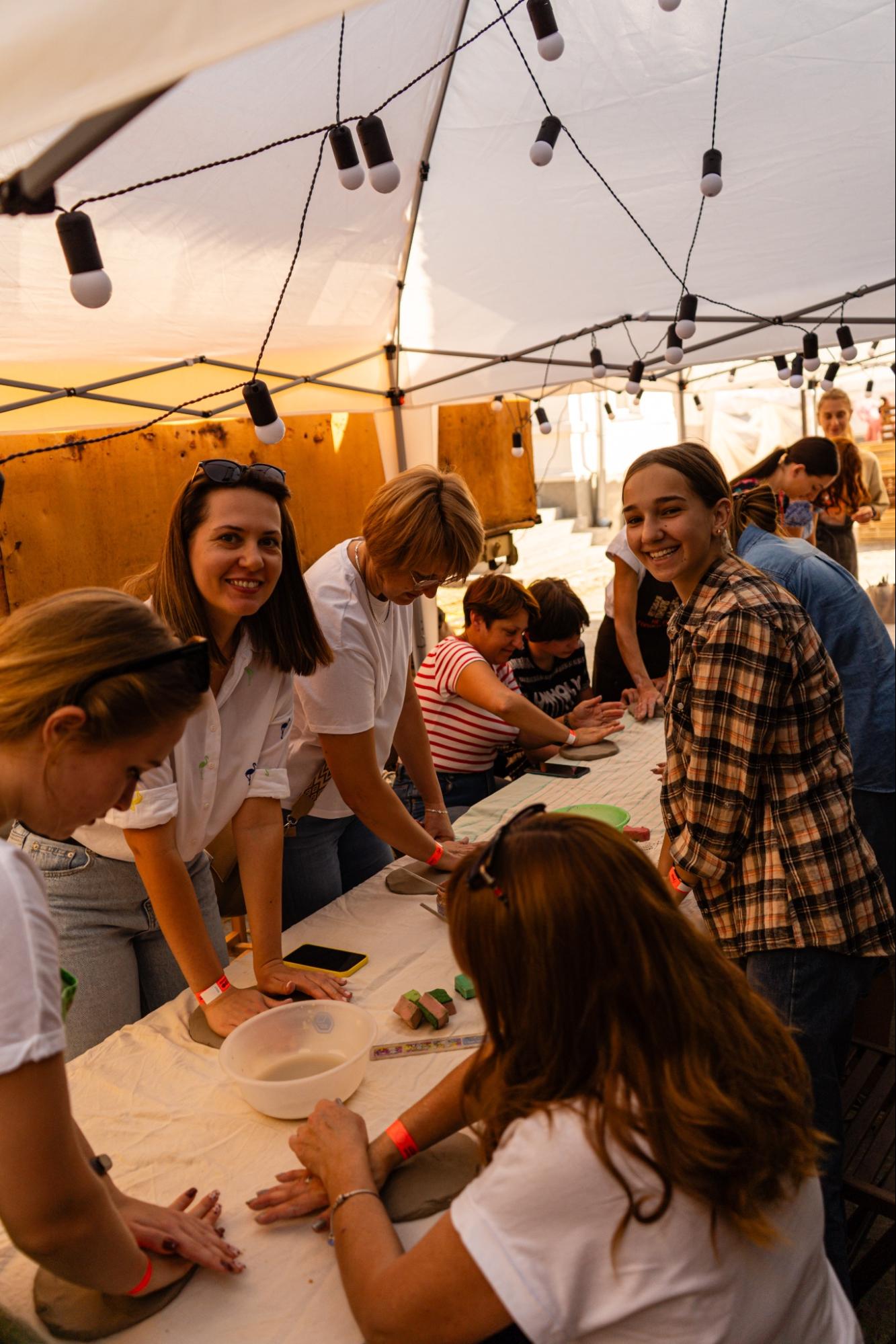
Pottery master class at the festival Spassky Fest. My Poltava". Photo: Instagram/mistohab
Army fundraisers during festivals
During all three festivals, the organizers collected funds for the needs of the Ukrainian military. In July, Kyi. Shchek. Khoryv collected ₴700,000, the first half — ₴350,000 was transferred to the Serhii Prytula fund for the purchase of three drones, and the second went to the revival of the Zhytniy Market.
"At the pop-up in October, we managed to collect ₴191,316 for drones for the Azov regiment. These are donations, funds from meals sold by celebrity participants, and part of the tickets sold," Klopotenko explained.

Craft producers at the pop-up Kyi. Shchek. Khoryv. Photo: Facebook/Zhytniy market
At The Spirit of Unbreakable festival, it was possible to collect ₴240 thousand thanks to sealed boxes near various locations with workshops and an auction, which sold lots for almost ₴220 thousand. The money was transferred to the volunteer organization Military Post for the purchase of FPV drones.

Cars with the Military Post logo. Photo: Facebook/Roman Kovalchuk
The soloist of the group Tin' Sontsia, Serhii Vasylyok, who is currently serving in the army, came to the festival. He immediately said that he did not need royalties, says the organizer of The Spirit of Unbreakable. He wanted to help his unit raise funds for drones.
"We found partners — the Lesya UA Foundation, which handed over a purchase certificate for a Mavic 3T quadcopter, as well as a quad bike, Starlinks, charging stations, and goodies to the unit of the soloist of the band Tin' Sontsia, Serhiy Vasyliuk. This foundation also sold a saber from a Dnipro cossack at an auction for ₴200,000, which was used to buy another Mavic 3T. The cossack who provided a saber was promised a new one. The total amount of assistance was ₴640,000," explained Kovalchuk.
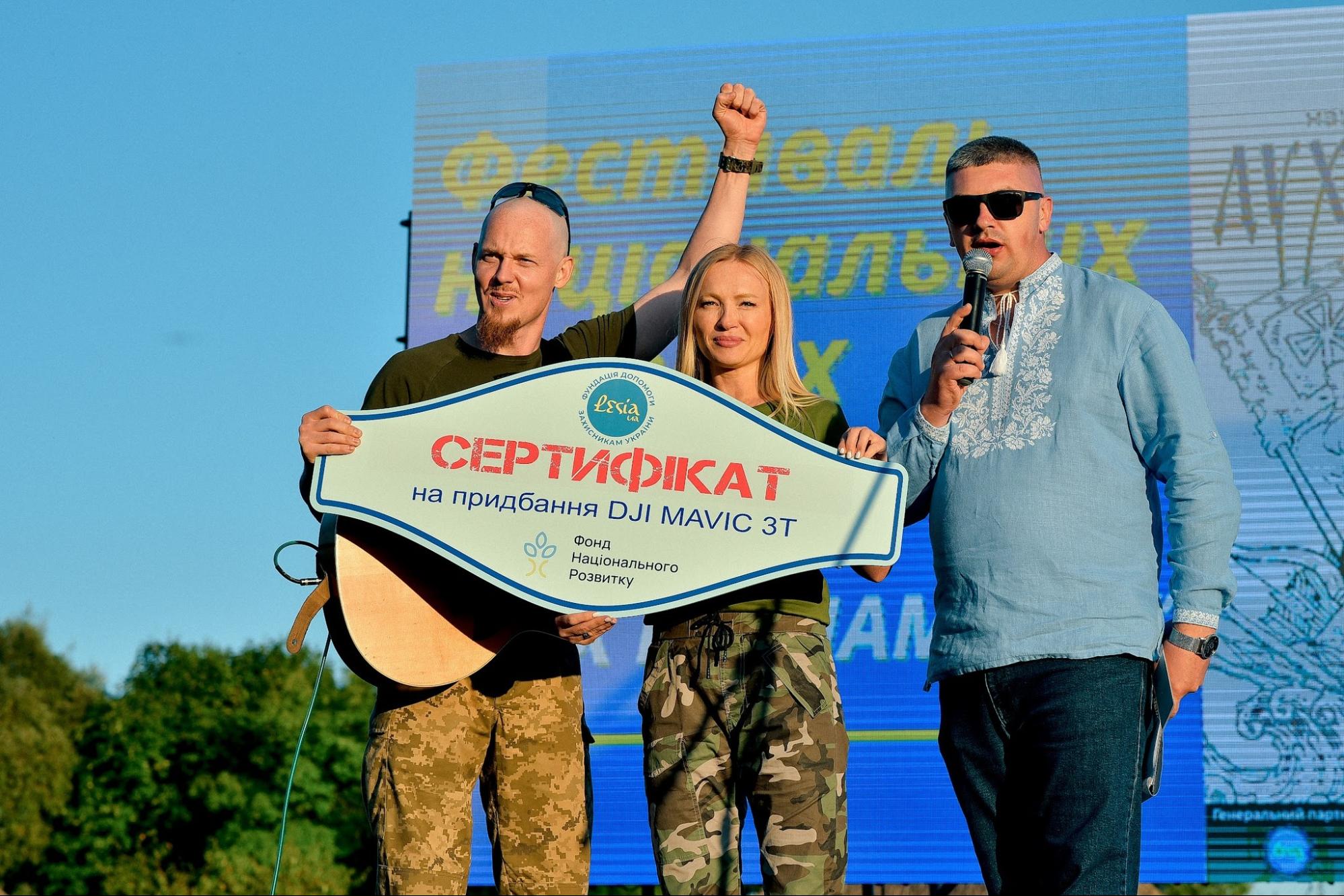
Serhiy Vasylyuk, the soloist of the band Tin' Sontsia, holds a certificate for a Mavic drone. Photo: Facebook/Roman Kovalchuk
Kovalchuk admits that the organizational debt of the festival is ₴80,000, but no one was going to cover the expenses with the donations: "Currently, entrepreneurs are coming to meet me because they understand that I do not have the goal of making money for myself. Of course, they have employees to pay, so they can't just forgive my debts. However, they are ready to wait because they understand the importance of the event."
Spassky Fest. My Poltava managed to collect ₴101,199, Lisova recalls. The main income of the festival is the entrance ticket. Also, after participating, crafters donate a set percentage of their sales. The collected funds were divided according to the 80:20 principle. In this way, ₴20,240 were transferred to buy drones for the Solovei aerial reconnaissance unit, and ₴80,959 were transferred to the Mistohub space.
Other initiatives at the Poltava festival helped the army. The shop Mistoshop collected books brought by residents of the Poltava region and then sold them for a donation. The earned ₴12,332 were transferred to drones for Ukraine's defense ministry's Main Directorate of Intelligence. Also among the invited participants was the volunteer organization Support AZOV, which fundraised for the needs of the soldiers of the 3rd Separate Assault Brigade.
"We also held an auction where we sold mainly war trophies. The Support AZOV volunteers accurately presented one lot. Among the lots were a military flag and a coin from the White House in honor of the liberation of Snake Island," said the coordinator of the Spassky Fest. My Poltava.
Safety of guests and participants
The first festival, Kyi. Shchek. Khoryv, in July, was visited by more than six thousand people, although, as Klopotenko admits, they expected three to four thousand visitors. Security was taken care of in advance: "During the festival, we cooperate with a security company that handles peace and order at the location. In the event of an air alert, we have an action plan and instructions for participants. At the event's location, there is also information about the largest shelters nearby and other nearby storage facilities, which guests of Zhytniy can use."
No less than two thousand people visited the Spirit of Unbreakable festival; Roman Kovalchuk cannot name the exact number because the entrance was free. However, he adds that the parking lot near the territory was completely filled with cars: "There were so many people in the open-air museum at no other event. We would have liked more, but due to delays with the permit, our advertising did not work as well as it could have."
Since the festival territory had a considerable area, signposts and special routes were developed for the guests to the shelter for 2,800 people in the nearest school.
"We took permission to use the shelter and also invited the police, municipal guard, emergency services, and medical assistance for security. We have also developed routes to the shelter so that there is no crowding. All over the territory, there were arrows indicating where to move," explained Kovalchuk.

Visitors to The Spirit of Unbreakable festival. Photo: Facebook/Roman Kovalchuk
Spassky Fest. My Poltava, in the courtyard of the Poltava Art Museum named after Viktor Bazhan, was visited by 2,600 people who had the opportunity to choose one of three bomb shelters during the air raid:
"We were lucky with the location. There were three bomb shelters close by. One was under the museum where we held the festival. Two more, one of the best bomb shelters in the city, are located 300 and 700 meters from the festival venue," Lisova said.
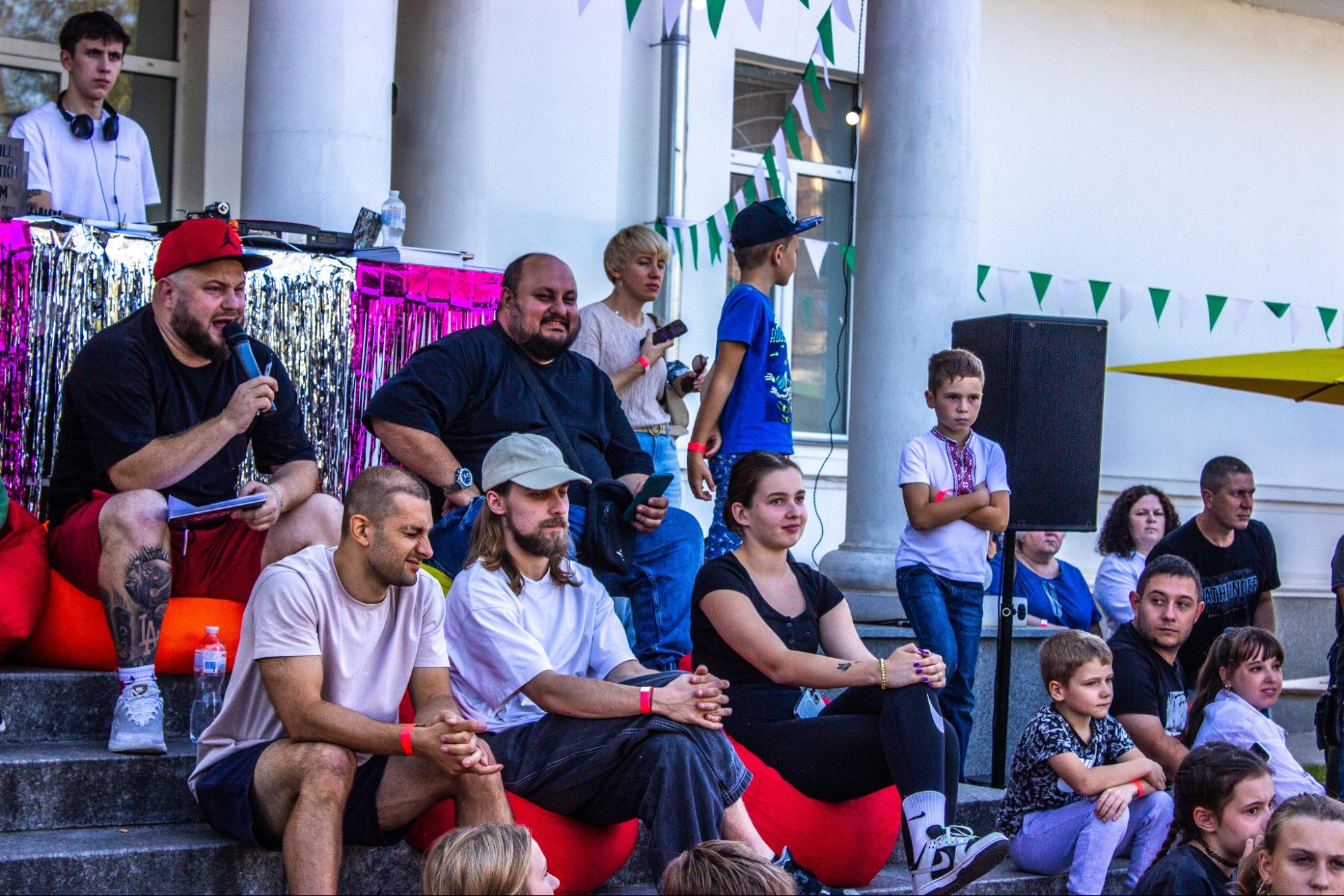
Participants at the Spassky Fest. My Poltava. Photo: Instagram/mistohab
"War is our constant risk"
To hold a festival during a war, the organizers need to consider the possible risks. In addition to the safety of the participants, other issues that may affect the planned program have to be taken into account. Chef Klopotenko anticipated power outages during the gastronomic festival, so the location was provided with generators. They were needed just in time for the second festival, Kyi. Shchek. Khoryv. Also, the roof of the Zhytniy market is poorly prepared for rainy weather: "Zhytniy's roof leaks hard. But my team created a solution and placed inflatable children's pools on location, where rainwater flowed," says the chef.
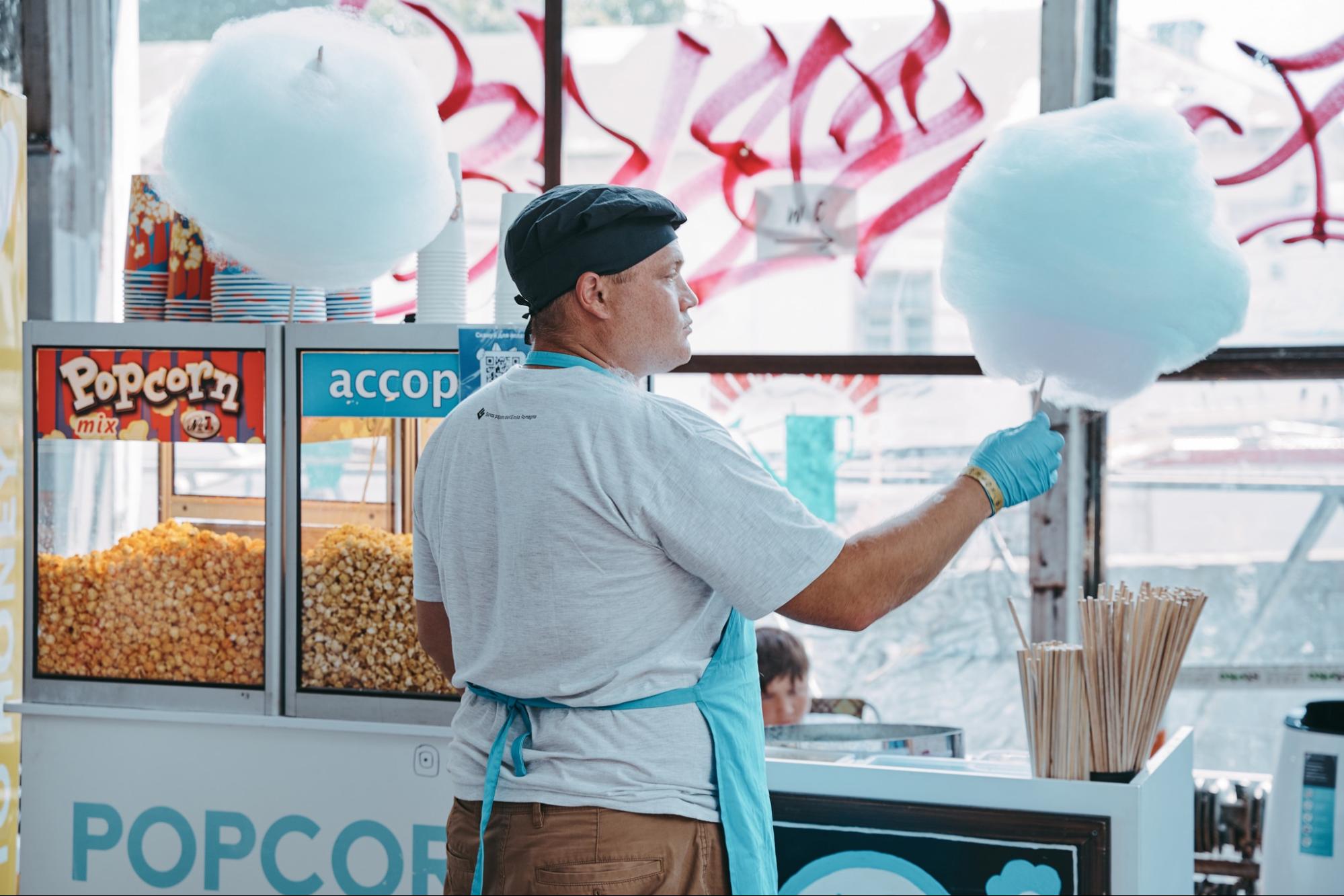
Cotton candy stand at the Kyi. Shchek. Khoryv festival. Photo: Facebook/Zhytniy Rynok
The organization of festivals should be treated responsibly, explains Kovalchuk. Although it is almost impossible to predict all risks, they can be minimized. Organizers should have a plan B in case of something unforeseen: "I bear responsibility and clearly understand that if something happens, I can receive the punishment myself. Now, it is important to take maximum care of safety. Everything will happen as it should, but at the same time, I am carefully preparing for the festival. It is worth planning properly and preventing possible problems. It is better to prepare for them, and it is good if they do not arise later because, as they say: 'better safe than sorry,'" says Kovalchuk.
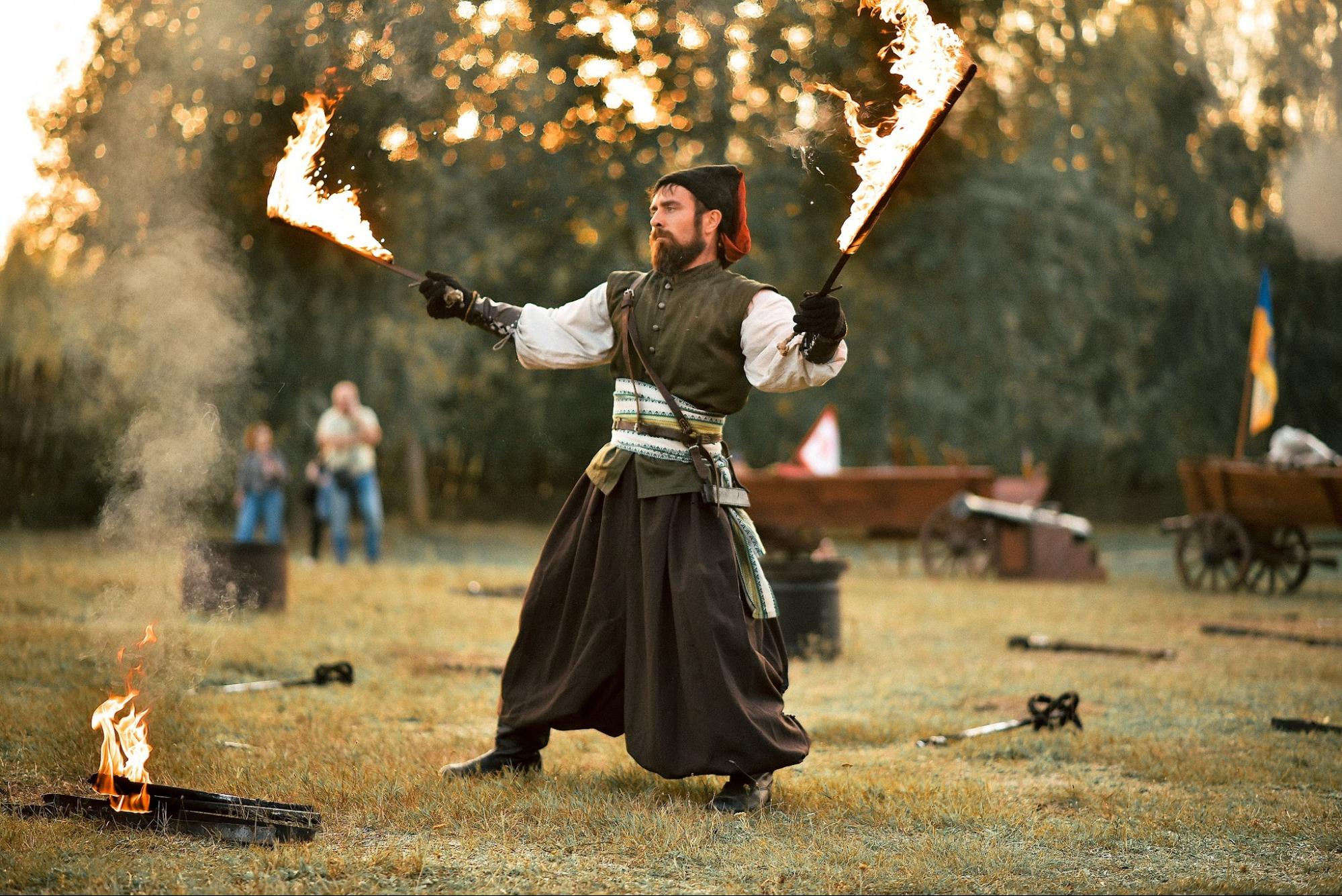
Participant of The Spirit of Unbreakable festival. Photo: Facebook/Roman Kovalchuk
Coordinator of the festival Spassky Fest. My Poltava admits that the war may force changing the festival dates. She recalls that, in general, the festival had to be postponed twice: "For the first time, it was this year, when a tragedy happened in Chernihiv, and a ban was issued on all mass events. We did not change the location but moved the event for a week; everything went well. The second time, there was a ban on street events, and we had to find another location because we usually held the event by blocking the street. And here, the Viktor Bazhan Museum helped us a lot, and we could hold it on its territory," recalls the coordinator.
Tips for festival organizers during wartime
Festival organizers interviewed by Rubryka are inclined to think that holding festivals during the war is still worthwhile. Kovalchuk advises not to be afraid to take responsibility and not to neglect the safety of guests and event participants.
"Any event must necessarily have a charitable purpose; without that, I don't see the point of it all," says the organizer of The Spirit of Unbreakable festival.
Coordinator of the Spassky Fest. My Poltava adds that it is worth inviting volunteer organizations to the festival and holding exhibitions that will remind of the war. And, of course, it is necessary to have a backup plan and clearly understand why everything is generally organized.


